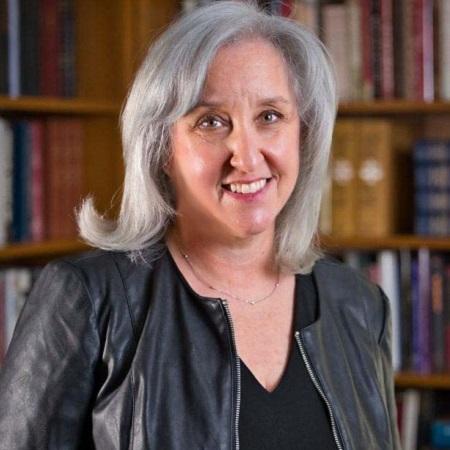

Debra Moss Vollweiler is a Visiting Professor at Haub Law for the spring semester of 2022, and the 2022-2023 Academic Year. While at Haub Law, Professor Vollweiler is teaching Secured Transactions, Corporations and Partnerships, and Contracts. She is a tenured Professor of Law at Nova Southeastern University, Shepard Broad College of Law, in Ft. Lauderdale, FL, and is the former Associate Dean for Academic Affairs and Interim Dean of the College of Law. A frequently published scholar, her research and works have focused on professionalism, teaching, learning, and attorney discipline. An expert on the law school curriculum and teaching, learn more about Professor Vollweiler, her background, career, and advice for law students in this student-led Q&A.
You are teaching Secure Transactions and also Corporations and Partnerships at Haub Law this semester, what brought you to Pace?
I am currently a Visiting Professor here at Haub Law - from Nova Southeastern University Shepard Broad College of Law in sunny, warm Fort Lauderdale, Florida. I recently finished five years of intense administrative work at NSU. I was the Associate Dean for Academic Affairs, and I was the interim dean for a period of that time as well. I was Interim Dean during 2020, which meant I was in the seat when the pandemic hit. I was actually serving in both roles simultaneously at that time. We did get a new dean, and I assisted with that transition, but I ultimately decided that I was not spending as much time on teaching, which I truly love, because of that intense administrative role I had. So, I was looking for a way to return to teaching and that can be hard to fully immerse yourself in when you've been an administrator on a faculty. Nobody ever kind of really wants to let you go. And so my thought was if I could visit at another institution, it would give me the space and time to really dedicate myself fully into what I love to do and teaching and sort of be a hard break from what I was doing I loved my time as an administrator, but I am just so thrilled to be back in teaching.
I am from New York and I actually have a ton of family up here, my children are in New York, Boston, and Maryland, and we already had an apartment in New York. Being in this area was a big draw and when I thought about making the change, and when I saw that Pace was looking for someone whose teaching aligned exactly with what I wanted to do, I was immediately interested. I met some of the faculty and talking to them, I thought it was a great place to relaunch my full-time teaching journey so I'm thrilled to be here.
Now that you have been here, what do you think about Haub Law?
Actually, I have loved everything about it. I'm so impressed with everybody at Pace, everybody has really been very welcoming and helpful. Everyone is so dedicated to what they do-- students, faculty, staff alike. I'm really impressed with that.
You have mentioned a few times that your true passion is teaching – can you tell me about that?
When you look at some people's scholarship, they really connect their scholarship to the substantive law of what they do. People who teach environmental law often write about environmental law. My scholarship from the very beginning, and I'm going back 20 something years, has been about teaching, so I have spent the bulk of my career, not just being a teacher, but reading about good teaching, trying to think about teaching, and writing about teaching.
Since people who teach in law school don't necessarily come through the same path as other teachers-- if you wanted to be a K through 12 teacher you need certain degrees and student teaching and training, I've spent a lot of time reading about the formal training and reading into those resources that other kinds of teachers get and trying to import them and translate that to law school teaching.
Most faculty talk about their scholarship and their teaching dovetailing, but mine is a little different, as it is about the idea of teaching, not about contracts or corporations or secure lending. So I have literally spent my entire career thinking and learning how to be a teacher. I will say also when I was waiting for my bar results when I took the bar exam (I'm licensed in Florida) and it was a long wait for the bar results, I actually paid the bills by being a substitute middle school math teacher. So, that was actually where I got the idea that you know there's a lot more to teaching than we think about, and I went into practice after that. I didn't go right into teaching, but that was the first seeds of my personal understanding that teaching was a discipline to itself. In addition to the law, you could pair it with whatever subject you want, but it's a discipline that was sort of the root of that idea.
So, if anybody needs help with their algebra homework, you can let me know!

What are you currently working on right now?
I am currently working on an article that takes a concept that I saw once in passing, that's being used in other parts of education. I'm trying to think about how to use this in law education, which is something called a “skill”abus--replacing a traditional syllabus with a “skill”abus . I am reading and investigating everything I can find about how to do this and how this idea hasn't really formally reached law schools. Traditional syllabi are focused so much on doctrine--you know, 'in this class we're going to cover this case' and in this case gross negligence and corporate formation and whatever the doctrine is of the course.
However, there are skills that you're teaching underlying that doctrine in every course, not just how we think in law school of skills courses like interviewing and counseling or trial advocacy, but that in every single course your teaching skills are built in. These could be anything from oral advocacy to critical thinking to whatever it is, so a “skill”abus signals the building of the skills into the benchmark of the syllabus so that this becomes more transparent and apparent to students. The whole goal of the course, and my idea, is to explain the concept of skills in every course, why they should be up front for students, not hidden underneath the doctrine of the syllabus, and to model some ways that we can reimagine syllabi to be “skill”abus.
What advice do you have for students who one day would like to go into contracts or secured lending?
I think for students who want to go into contracts or secure lending. I think there's two things I want to get across. Number one – I think it's important to not dismiss the importance of foundational courses.
I think sometimes students get frustrated in a course like contracts or corporations because you're not drafting contracts, and you're not actually learning exactly the steps to take in whatever state you're in to form a corporation and to incorporate something--you're learning the underlying foundational theories and principles. So I would say my first advice to students is don't diminish the importance of those foundational courses. Understanding all of those underlying concepts and how they relate to one another is a really important step.
My next advice would be, then if you're still interested in the subject after the foundational courses, or if you become interested after the foundational courses, take as many levels in the subject as you can. If you can, take what the ABA would call a simulation course workshop, such as in a contract drafting that gives you the opportunity to apply your foundational knowledge to fictional clients. But then, close the loop and take that learning into a live client experience, whether it's through some type of a clinical experience or an externship or any type of position to appreciate each step of that path and what you learn at each point. Don't try to jump to the end right away. Don't try to say, well, I'm just going to get a job and learn there, I don't need all of this training.
I think that you will be a better lawyer by having taken your time and really practicing the skills at every step. I also want to say that even if you think you don't want to do contracts, or secured lending or deal with sales of goods, it's so ubiquitous in the world, that it's kind of hard to find an area of law where you're never going to touch any of those subjects. So I would encourage all students to take these kinds of foundational courses.
I can tell you I once had a student a long time ago, sat in the very back of my contracts class, who very clearly did not like the contracts class and one day before class I was just chatting with people get to know them. And I said, so what are you thinking of contracts and he says, I hate this class, I don’t want to learn it. I just want to be a sports lawyer. Of course, sports lawyers do contracts constantly. But in first year contracts, there are no sports law cases --you're talking about an opera house that burned down and you're talking about somebody not showing up for work on a sailing ship in the 1800s. But you still need to learn these foundations.
So that would be my other piece of advice, keep your mind open to all of the things that you want to do.
Thank you for doing this, I have friends in your classes and they absolutely love the class and have mentioned how great of a teacher you are.
I'm glad to hear they're enjoying the class. I really love these classes, so it's always nice when someone else shares my enthusiasm. It is always nice to hear that feedback regarding my teaching since I have spent a good deal of my scholarship and focus on thinking about teaching; really, it is actually wonderful to hear. I am looking forward to returning next year!
